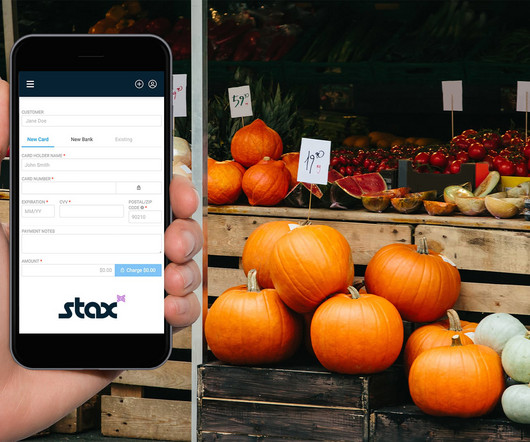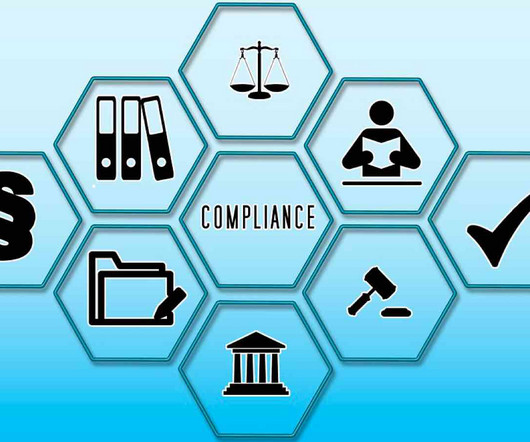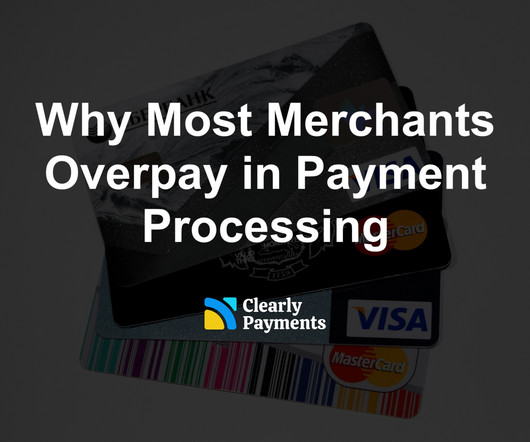All You Need to Know About Internet Credit Card Payment Processing
Stax
MARCH 5, 2025
To choose the right solution, you need to look at various factors when evaluating potential providers, including supported payment types, transaction fees and pricing structures, payout speed, and PCI DSS compliance. How Can Internet Card Payment Processing Help My Business? Consult with your current merchant services provider.


















Let's personalize your content